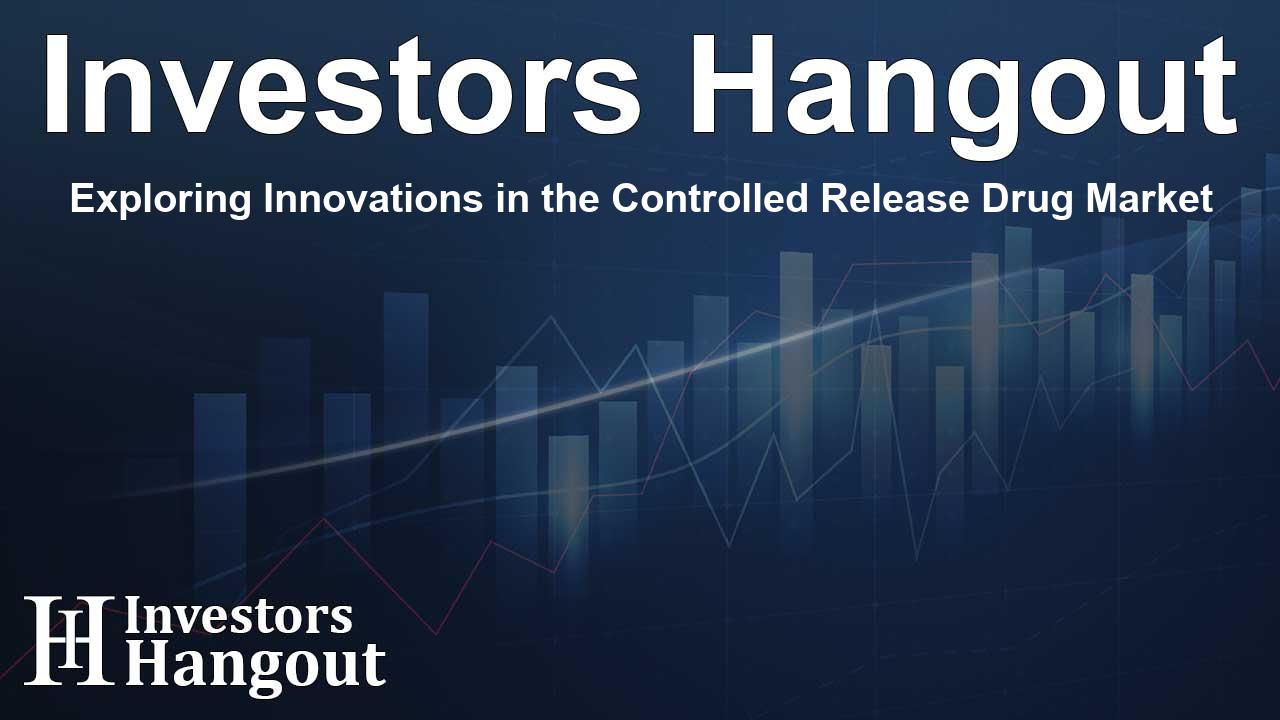Exploring Innovations in the Controlled Release Drug Market

Understanding the Controlled Release Drug Delivery Market
The global controlled release drug delivery market is on a remarkable trajectory, largely fueled by advancements in therapeutic applications as well as substantial investments from leading pharmaceutical companies in novel delivery platforms. Areas such as neurology, psychology, metabolism, and pain management highlight the transformative role of controlled-release technologies. This approach emphasizes the benefits of long-term, targeted drug delivery, aimed at enhancing treatment efficacy, improving patient adherence, and minimizing side effects in complex chronic diseases.
Leading Players in the Industry
Major industry players like AbbVie, AstraZeneca, Boehringer Ingelheim, and Merck are at the forefront of developing and marketing controlled-release versions of blockbuster medications. They leverage advanced polymer matrices, nanotechnology, and injectable systems to extend drug activity and optimize dosing regimens. For example, in managing neurological disorders, long-acting formulations of medications enhance quality of life by smoothing out plasma concentration fluctuations. Similarly, once-daily oral products for diabetes management are gaining traction for their ability to maintain steady drug levels and improve patient compliance.
Market Dynamics and Competition
The controlled release drug delivery market is characterized by a delicate balance between innovation and lifecycle management. With several blockbuster drugs approaching patent expiration, the landscape of generic competition is becoming increasingly significant. An illustration of this is Tris Pharma's FDA approval of the generic version of Delsym®, a controlled-release dextromethorphan product previously lacking a generic option. This innovative technology not only enhances patient-friendly delivery but also taps into a lucrative market segment with annual sales exceeding $100 million.
Strategic Partnerships Driving Growth
Collaborations between pharmaceutical companies and medical technology firms are instrumental in expanding access to controlled-release treatments. A recent partnership between Pacira BioSciences and Johnson & Johnson MedTech focuses on enhancing the market presence of Zilretta, an extended-release injection for knee pain management. This partnership aims to leverage J&J MedTech's commercial infrastructure to address a vital need in treating osteoarthritis, demonstrating the potential of controlled-release formats to redefine treatment strategies.
The Future of Drug Delivery Technologies
The evolution of the global controlled drug release market points towards an inevitable shift towards more effective, convenient, and less burdensome treatment options. As dominant market players continue to enhance their pipelines and establish strategic alliances, patients stand to benefit from innovative therapies. From long-lasting injectable treatments for chronic neurological conditions to advanced oral generics for metabolic disorders, the future trajectory of controlled drug delivery systems holds the promise of transforming therapeutic approaches worldwide.
Frequently Asked Questions
What is the controlled release drug delivery market?
The controlled release drug delivery market focuses on innovative methods to deliver medications over extended periods, enhancing efficacy and patient compliance.
Who are the key players in this market?
Industry giants such as AbbVie, AstraZeneca, Merck, and Boehringer Ingelheim lead the development of controlled release drugs.
How do controlled release technologies benefit patients?
These technologies improve the effectiveness of treatments, ensure steady medication levels, and minimize side effects, thereby enhancing patient adherence.
What are some recent developments in this market?
Recent advancements include new formulations targeting chronic conditions and partnerships between companies to maximize treatment accessibility.
How does patent expiration affect the market?
As patents expire, generic alternatives become available, increasing competition and potentially lowering costs for patients.
About The Author
Contact Ryan Hughes privately here. Or send an email with ATTN: Ryan Hughes as the subject to contact@investorshangout.com.
About Investors Hangout
Investors Hangout is a leading online stock forum for financial discussion and learning, offering a wide range of free tools and resources. It draws in traders of all levels, who exchange market knowledge, investigate trading tactics, and keep an eye on industry developments in real time. Featuring financial articles, stock message boards, quotes, charts, company profiles, and live news updates. Through cooperative learning and a wealth of informational resources, it helps users from novices creating their first portfolios to experts honing their techniques. Join Investors Hangout today: https://investorshangout.com/
The content of this article is based on factual, publicly available information and does not represent legal, financial, or investment advice. Investors Hangout does not offer financial advice, and the author is not a licensed financial advisor. Consult a qualified advisor before making any financial or investment decisions based on this article. This article should not be considered advice to purchase, sell, or hold any securities or other investments. If any of the material provided here is inaccurate, please contact us for corrections.
